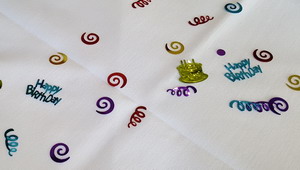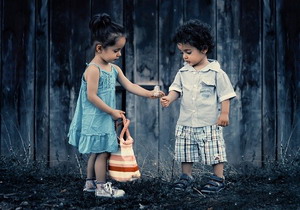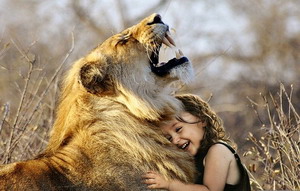 As I am writing this, I am celebrating my 69th birthday. Today felt like a good time to solidify my thoughts on love. I have avoided using the word love in my writings or conversations for a long time. It has always seemed like the word only invites confusion as everyone seems to have a different meaning for the word. I have always likened it to the simple word snow, for which Eskimos have 50 different words. Love is one of those basic values in our culture, and yet it creates so much grief and conflict because of how differently we each relate to the word. We want to assume that everyone is on the same page when we use the word love, but they really aren’t.
As I am writing this, I am celebrating my 69th birthday. Today felt like a good time to solidify my thoughts on love. I have avoided using the word love in my writings or conversations for a long time. It has always seemed like the word only invites confusion as everyone seems to have a different meaning for the word. I have always likened it to the simple word snow, for which Eskimos have 50 different words. Love is one of those basic values in our culture, and yet it creates so much grief and conflict because of how differently we each relate to the word. We want to assume that everyone is on the same page when we use the word love, but they really aren’t.
 Ellen and I have been working on a general definition for love that reaches its essence for a couple of years now. Our current working definition is:
Ellen and I have been working on a general definition for love that reaches its essence for a couple of years now. Our current working definition is:
Love is the desire and willingness to positively participate.
To be meaningful, love has to be rooted in a feeling, a desire to connect. Equally, love has no meaning unless the individual is willing to take the risks involved in actually expressing that love through action. I’m sorry, but an unexpressed love is not real love. It is a hope, which is not the same thing. True love is fearless and bold. We look at the experience of life as being on a continuum that ranges from fear at the negative end to love at the positive end. Love is the opposite of fear.
 What does ‘positively participate’ mean? Love is a term that describes a functional type of relationship. You cannot love or be loved by another unless you relate to others in some way. To relate is to participate with them directly. Thus, you cannot really say you relate to the suffering of people you have never met. We are talking about actually interacting with others in a participatory manner. Now we come to the loaded term positive. For my purpose, it means something very specific. Positive participation requires both support and mutuality. In a positive interaction, both people come away as winners. Both people gain something they personally want from the interaction. Mutuality requires mutual respect. The exchange between participants involves a level of empathetic understanding of what each side values and wants, and those values and wants are respected.
What does ‘positively participate’ mean? Love is a term that describes a functional type of relationship. You cannot love or be loved by another unless you relate to others in some way. To relate is to participate with them directly. Thus, you cannot really say you relate to the suffering of people you have never met. We are talking about actually interacting with others in a participatory manner. Now we come to the loaded term positive. For my purpose, it means something very specific. Positive participation requires both support and mutuality. In a positive interaction, both people come away as winners. Both people gain something they personally want from the interaction. Mutuality requires mutual respect. The exchange between participants involves a level of empathetic understanding of what each side values and wants, and those values and wants are respected.
 One of the purest and simplest exchanges that serve as a model for love is the exchange between two vendors in an open marketplace. Each knows what they have to give in exchange for what they want. Each value what the other has to trade and each is looking to make a fair trade of these goods. A fair trade shows respect, which builds a relationship for desirable future exchanges. Desire, willingness, positivity, and participation are all there in balance. A piece to this puzzle that I just came across is that both participants are functioning in a state of abundance at that moment. Each has something to trade that the other wants. Neither is trying to get something for nothing. The something for nothing game is a childhood interaction based on the child’s state of lack and the parents’ state of abundance. This is the dependence/co-dependence game, and as much as everyone tries to pretend this is love, it is not. It is a power/manipulation game.
One of the purest and simplest exchanges that serve as a model for love is the exchange between two vendors in an open marketplace. Each knows what they have to give in exchange for what they want. Each value what the other has to trade and each is looking to make a fair trade of these goods. A fair trade shows respect, which builds a relationship for desirable future exchanges. Desire, willingness, positivity, and participation are all there in balance. A piece to this puzzle that I just came across is that both participants are functioning in a state of abundance at that moment. Each has something to trade that the other wants. Neither is trying to get something for nothing. The something for nothing game is a childhood interaction based on the child’s state of lack and the parents’ state of abundance. This is the dependence/co-dependence game, and as much as everyone tries to pretend this is love, it is not. It is a power/manipulation game.

This was a tough one for me to work out. I was a dyed-in-the-wool co-dependent. My identity came from taking care of others. I actually thought that being co-dependent was the essence of being loving. Life teaches us what is real through our personal experience of what works and what does not. My co-dependency did not work. I kept believing that I was messing up in some way, but I could not see how. My premise was based on the dictum: as you give, so shall you receive. I naively believed that this meant that I would get back exactly what I gave out to each person. Instead what life showed me was that the more I gave, the more those I gave to wanted and took. There was no mutuality. I was not supported. My needs and wants were not met. I believed the premise, but somehow things were just not working.

My primary flaw at the outset was living in a consciousness of lack. I felt I was incomplete and believed that my lack could be filled from the outside by loving approval from another. As a co-dependent I was acting like a providing parent, but subconsciously I was like a starving child. I was putting out a mixed message. I did not understand the consequences of that. On the surface I was being a care-taker, but underneath I was seeking to fill the emptiness inside myself with something from the outside. The underneath is what they would mirror back to me. This was not quite what I was looking for. I found that when I step into giving from an empathetic understanding of what they actually value and want, I also gained greater empathy for what I value and want. The act of giving opens up my creative flow and gives me permission to give to myself as well as open to receiving from others. Gradually I learned to shift from a belief in my lack to an immersion in my abundance. All of life is available to play with as I fill my inner lack with connection to life. Truly, the more I give by out flowing my gifts, the more I learn how to receive from the universe. My mistake was in thinking that my giving alone would precipitate the same type return from the person I was giving to. While that type of mutual relationship does exist, simply giving does not make it happen.
 Well, live and learn as they say. Fortunately, we are drawn to precisely the people who will teach us what we need to learn next. Unfortunately, since learning requires us to let go of what we currently believe we know, learning is usually filled with the suffering of having to embrace that life is neither the way we want nor the way we think it is. This is really the case with love. There are hundreds of types of love, maybe thousands. Many are driven by the excitement of the hope and belief that we will “win” the game of love and gain the undying adoration of someone we desire no matter what they do or don’t do. Sadly this excitement typically turns into a power struggle between people as they try to extract the desired prize from each other.
Well, live and learn as they say. Fortunately, we are drawn to precisely the people who will teach us what we need to learn next. Unfortunately, since learning requires us to let go of what we currently believe we know, learning is usually filled with the suffering of having to embrace that life is neither the way we want nor the way we think it is. This is really the case with love. There are hundreds of types of love, maybe thousands. Many are driven by the excitement of the hope and belief that we will “win” the game of love and gain the undying adoration of someone we desire no matter what they do or don’t do. Sadly this excitement typically turns into a power struggle between people as they try to extract the desired prize from each other.
 Some people had the good fortune to have wise and mature adults as role models that empowered them to engage in love from a more respectful place. Parents can teach us the value of mutuality if they have learned it themselves. It is very lovely when I see the actions of children raised by such adults. It does happen, but it is rare. Most children grow up believing their survival and okayness depend upon pleasing some adult or peer group by being what they want. That means they have to suppress their natural talents and gifts and instead appear to be what others want. This is very disempowering, not only out in the world but in developing self-love. Self-love comes from feeling our successes at getting our needs and wants met through the expression of our natural gifts; the things we love to do and love to share. When we believe we have to be what others want instead of who we are, we lose the opportunities to appreciate who we are on the inside.
Some people had the good fortune to have wise and mature adults as role models that empowered them to engage in love from a more respectful place. Parents can teach us the value of mutuality if they have learned it themselves. It is very lovely when I see the actions of children raised by such adults. It does happen, but it is rare. Most children grow up believing their survival and okayness depend upon pleasing some adult or peer group by being what they want. That means they have to suppress their natural talents and gifts and instead appear to be what others want. This is very disempowering, not only out in the world but in developing self-love. Self-love comes from feeling our successes at getting our needs and wants met through the expression of our natural gifts; the things we love to do and love to share. When we believe we have to be what others want instead of who we are, we lose the opportunities to appreciate who we are on the inside.
 Love is the desire and willingness to positively participate, even with ourselves. We must respect ourselves. We must support ourselves. We must approach mutuality with others understanding that our needs are just as important as theirs. Their ability to express better or generate drama around their needs does not make their needs more important. It just means that they are better at playing the game of trying to get something for nothing. No one is entitled to get something for nothing. That is an unsustainable stance with life.
Love is the desire and willingness to positively participate, even with ourselves. We must respect ourselves. We must support ourselves. We must approach mutuality with others understanding that our needs are just as important as theirs. Their ability to express better or generate drama around their needs does not make their needs more important. It just means that they are better at playing the game of trying to get something for nothing. No one is entitled to get something for nothing. That is an unsustainable stance with life.
 From my point of view, learning to love is the purpose of life. Growth is the movement from fear to love. In my old writings, I used to say FEAR is just a Failure to Embrace and Accept Relationships. Since then I have been trying to understand what a loving relationship truly is. I am pretty happy with a relationship based on the desire and willingness to positively participate as my current definition.
From my point of view, learning to love is the purpose of life. Growth is the movement from fear to love. In my old writings, I used to say FEAR is just a Failure to Embrace and Accept Relationships. Since then I have been trying to understand what a loving relationship truly is. I am pretty happy with a relationship based on the desire and willingness to positively participate as my current definition.
Take care,
David
